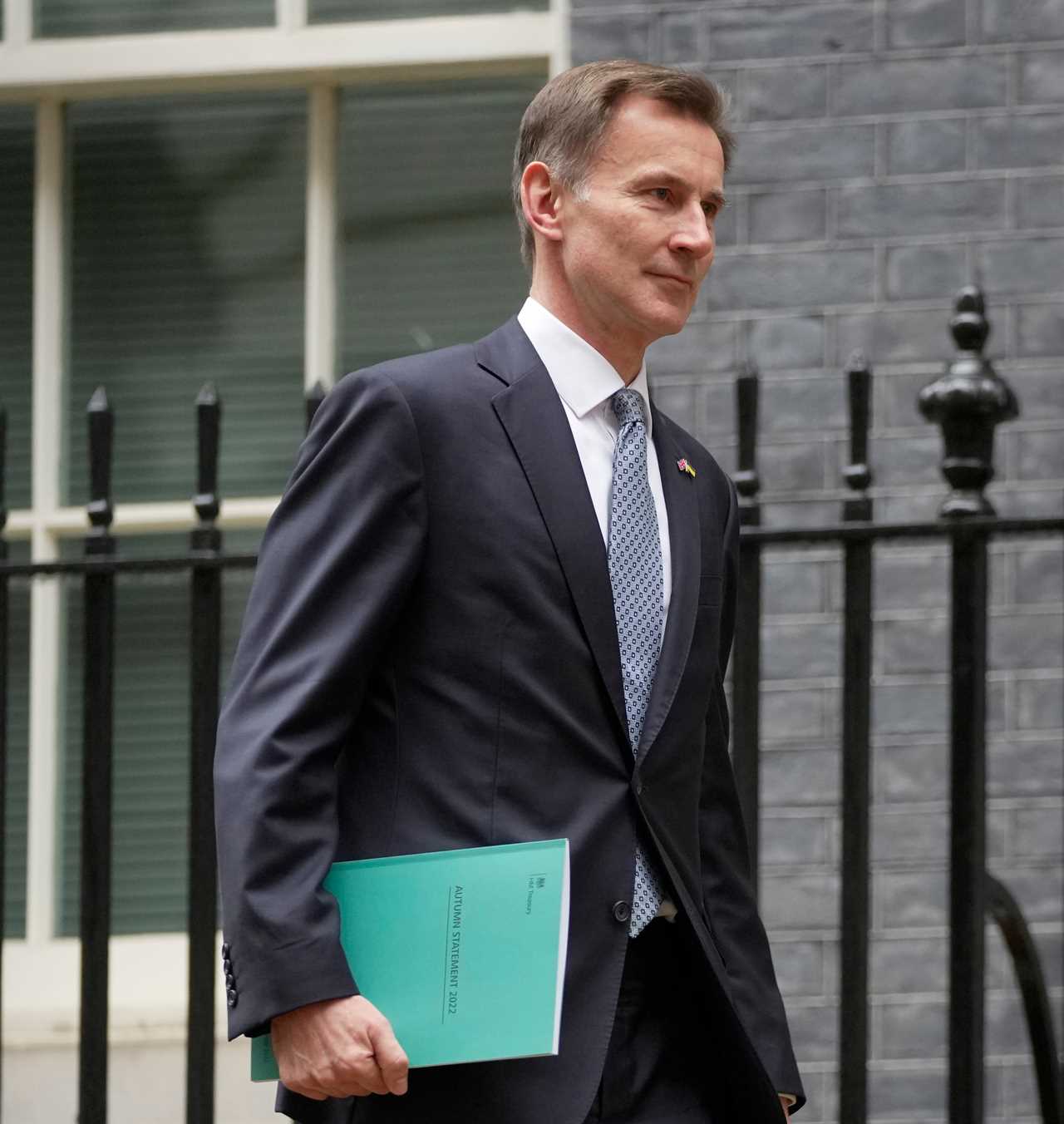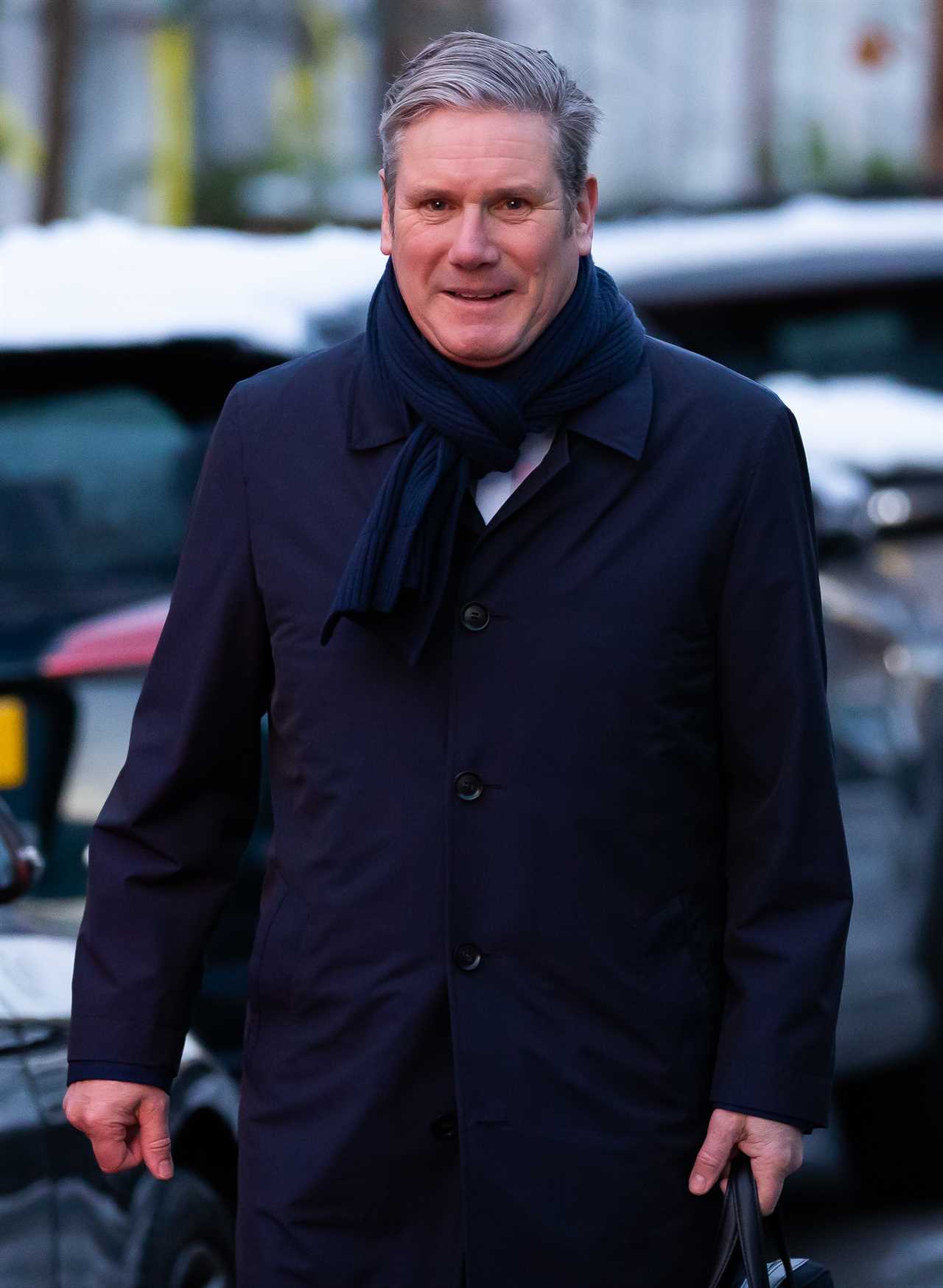JEREMY Hunt dug in yesterday in the opay battle with railway workers and nurses – warning that making the “wrong choices” now would prolong the country’s inflation agony.
The Chancellor threw down the gauntlet to strikers who are demanding bumper pay rises amid the cost of living crisis.

The Chancellor said: ‘I know it is tough for many right now, but it is vital that we take the tough decisions needed to tackle inflation’
It came as PM Rishi Sunak continued to work on anti-strike laws to ‘protect lives and livelihoods’.
One option is to ban emergency service workers from going on strike.
Nurses, who are calling for an eye-watering pay spike of 19 per cent, will walk out today and next Tuesday in a long running dispute.
But Mr Hunt said: “I know it is tough for many right now, but it is vital that we take the tough decisions needed to tackle inflation – the number one enemy that makes everyone poorer.
“If we make the wrong choices now, high prices will persist and prolong the pain for millions.”
He also said the aftershocks of the pandemic and the Ukraine war were “plaguing economies” across Europe as families and businesses struggle in the UK.
The pay battle row saw Sir Keir Starmer tell Rishi Sunak that to avert the nurses’ strikes the all he needs to do is “open the door and discuss pay with them”.
But the Prime Minister hit back blasting the “Labour nightmare before Christmas” accusing the party of protecting union “paymasters”.
Mr Sunak added that millions of people across the country will have their healthcare disrupted across 45 hospital trusts with 100,000 staff members downing tools.
It came as the TSSA rail union announced fresh strikes at two train operators on December 28 for 24 hours with 700 members walking out at West Midlands Trains and Great Western Railway.
Train drivers at Avanti West Coast are to be balloted for industrial action in a row over rosters with Aslef boss Mick Whelan saying the train firm of not employing enough drivers.
Health Secretary Steve Barclay is being urged to meet maternity staff to find out why so many are leaving the service.
The Royal College of Midwives has written to the Cabinet Minister spelling out the “multiple challenges” frontline staff are facing. after a ballot for industrial action fell just short of the legal turnout threshold.
Planned strikes by security guards on Eurostar this week have been called off as talks over pay and conditions continue.
But public support for striking rail workers is on the wane with backing down a third in just three months.
Forty-three per cent backed industrial action back in September but this has dropped to thirty per cent, as Ipsos poll revealed.
Some 85 per cent of people side with railway passengers with some 61 per cent also having sympathy with the railway workers.
RMT members will stage a second 48-hour strike from tomorrow which will badly hit shoppers and revellers in the run-up to Christmas.
Meanwhile, the High Court has granted permission for a legal challenge to the Government’s decision to allow agency workers to cover for strikers.
Eleven trade unions including Unite, RMT and Aslef have brought the case with a hearing expected from late March.
Union chiefs said the move was a “major blow” to attempts by Ministers to undermine workers’ right to strike for a better pay deal.
TUC boss Frances O’Grady said: “The right to strike is a fundamental British liberty but the government seems hellbent on attacking it at every opportunity.
“Threatening this right tilts the balance of power too far towards employers. It means workers can’t stand up for decent services and safety at work – or defend their jobs and pay.”
She said that the government is “shamelessly” falling over themselves to find new ways for workers to fight for better pay.
She added: “These attacks on the right to strike are likely illegal.
Ministers failed to consult with unions, as the law requires, and restricting the freedom to strike is a breach of international law.”

Keir Starmer told the PM to ‘open the door and discuss pay’ with nurses






